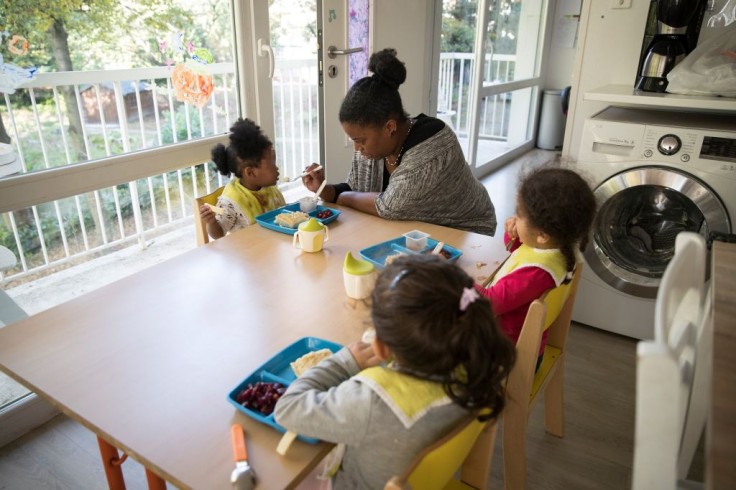
Creating a positive food environment for children can be a challenging task.
As parents, we all want our children to have a healthy and balanced diet, and parents often resort to using phrases that may be counterproductive to their efforts.
These phrases can create a negative food environment, making kids feel pressured, anxious, or guilty about eating, and can even lead to disordered eating behaviors in the long run.
According to the New York Post, registered dietitian Jennifer Anderson, encouraging negative feelings towards food and using sugary treats as a reward for eating can result in harmful eating habits for children.
Anderson has observed that forcing children to eat, offering them sweets as a bribe to consume vegetables, and enforcing rules about pleasing others at meal times can send unhealthy messages to kids that may negatively impact their relationship with food.
After years of studying children's eating habits, Anderson has discovered that certain phrases can trigger unhealthy eating behaviors in kids.
In this article, we will discuss seven toxic phrases that parents should avoid when trying to raise healthy eaters. Let's take a look at them one by one.
7 Toxic Phrases To Avoid When Raising Healthy Eaters
1. "I'm on a diet."
According to Reader's Digest, discussing diets and weight loss in front of your child can create anxiety and negative associations with food and body image. It is important to teach kids that food is meant to nourish our bodies and that all foods can be a part of a healthy diet in moderation. Instead of focusing on diets and restrictions, try to model healthy eating habits and a positive body image for your child.
2. "If you behave you'll get a sweet."
Using food as a bribe to get kids to behave or be quiet may create an emotional connection between food and comfort. It can also teach kids to eat when they're not hungry or to use food to cope with stress. Instead of using food as a reward, try to find non-food ways to motivate your child, like praising their good behavior or offering them a fun activity.
3. "You can have dessert after you eat your vegetables."
According to CNBC, this phrase implies that dessert is the reward for eating a healthy food like broccoli. While it's okay to have desserts in moderation, using them as a reward for eating healthy foods may give kids the wrong message about food.
They may start to think of healthy foods as something they have to endure to get to the good stuff. Instead, try to create a positive association with healthy foods by encouraging your child to try them and praising them for making healthy choices.
4. "I would really appreciate it if you took more bites."
This is another toxic trait to avoid telling your kids. Guilt-tripping kids into eating more can create a negative association with food and make them feel like they have to eat to please others.
It is essential to teach kids that food is meant to nourish their bodies, not to please others. Instead of using guilt to get your child to eat more, try to make mealtimes enjoyable and stress-free, and encourage your child to listen to their own hunger and fullness cues.
5. "Finish your food before you say no."
Forcing kids to eat more than they want or need can lead to overeating and a lack of trust in their own hunger and fullness cues. When raising healthy eaters, respecting your child's appetite and letting them decide when they're full is important. Instead of forcing them to eat more, offer them smaller portions and let them ask for more if they're still hungry.
6. "Finish your food if you want to be big and strong."
As per Psychreg, this phrase implies that kids won't be healthy or grow properly if they don't eat a certain food. While it's important for kids to have a balanced diet, using fear tactics to get them to eat may create anxiety and negative associations with food. Instead, teach your child about the benefits of healthy eating and make it a fun and positive experience.
7. "You're such a picky eater."
Labeling your child as a picky eater can create a self-fulfilling prophecy and make them less willing to try new foods. It's important to understand that kids have different taste preferences and may need multiple exposures to a food before they develop a liking for it. Instead of labeling your child as picky, try to offer them a variety of healthy foods and be patient with their food exploration.
In conclusion, creating a positive food environment is crucial to raising healthy eaters. Parents should avoid using toxic phrases that create pressure, anxiety, and negative associations with food.
Instead, parents should focus on creating a stress-free and enjoyable eating environment, offering a variety of healthy foods, and encouraging their children to listen to their own hunger and fullness cues. By doing so, parents can help their children develop a healthy relationship with food that will last a lifetime.